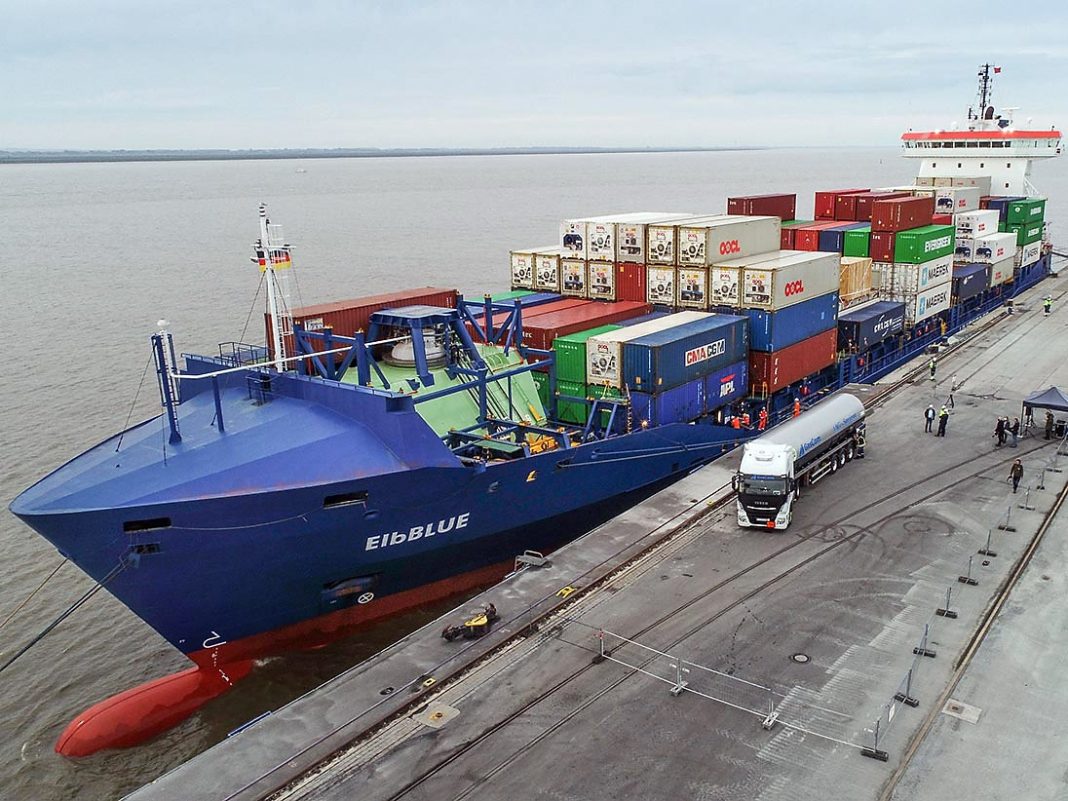In a world-first for the maritime sector, the containership ElbBLUE, owned by German shipowner Elbdeich Reederei and operated by charterer Unifeeder, bunkered 20 tons of green SNG (Synthetic Natural Gas) at the Elbe port in Brunsbüttel, Germany.
MAN Energy Solutions held a ceremony to mark the event, which marks the first time ever that synthetic fuel – generated from 100% renewable energy via power-to-X technology – has been employed in commercial shipping.
Formerly known as Wes Amelie, the 1,036TEU feeder container ship previously made headlines in 2017 when her MAN 8L48/60B main engine was retrofitted to its current, four-stroke MAN 51/60DF unit to enable dual-fuel operation.
The first such conversion of its type globally, it showed that existing engines could be converted to LNG operation with a tremendous effect on exhaust emissions and the environment. ElbBLUE operats in the North and Baltic Seas.
Speaking at the event, Wayne Jones OBE, Chief Sales Officer, MAN Energy Solutions, praised the leading roles that the various partners involved in the project played – including Unifeeder, Liquind and Wessels Marine – and commended them on their determination to drive green shipping.
He further said: “This is an important lighthouse project, essentially a proof of concept for the maritime energy transition. At MAN Energy Solutions, we strongly believe in the synthetic-fuels roadmap but joint efforts across the industry are needed to make it happen.
“The fact is that the respective governments need to establish a framework to make synthetic fuels readily available, while power-to-X needs to be developed on an industrial scale in order to bring down costs and make truly sustainable fuels a reality.”
The liquefied SNG was produced in a power-to-gas facility in Werlte, Germany, owned by kiwi AG. It is generated using 100% renewable energy.
ElbBLUE is now set to continue its journey under the supervision of engineers from MAN PrimeServ, MAN Energy Solutions’ after-sales division. As a result, the vessel’s direct CO2 emissions are expected to decline by 56 tons for this coming trip.


